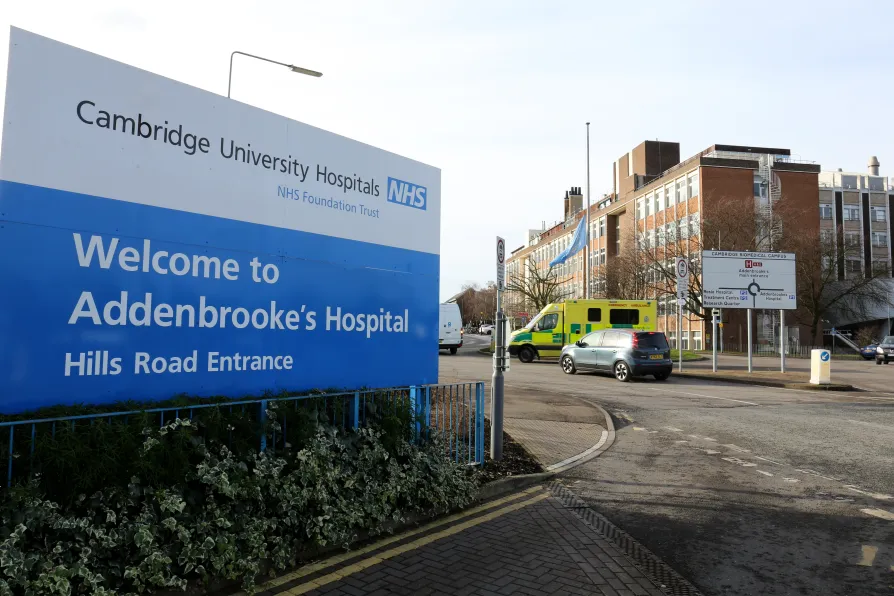John Wojcik pays tribute to a black US activist who spent six decades at the forefront of struggles for voting rights, economic justice and peace – reshaping US politics and inspiring movements worldwide
Hundreds of critical support posts are facing the axe at Cambridge’s Addenbrooke’s Hospital in a top-down imposition, reports SIMON BRIGNELL

 General view of Addenbrooke's Hospital in Cambridge
General view of Addenbrooke's Hospital in Cambridge
UP TO 500 non-clinical NHS jobs are at risk at Addenbrooke’s Hospital in Cambridge as part of sweeping national cost-cutting measures imposed on integrated care boards (ICBs).
The mandate, handed down by NHS England, demands that ICBs halve their running costs, reducing support spending to 2022 levels. The result has been a wave of job losses across multiple NHS trusts, particularly in support services such as administration, maintenance and education.
In Cambridge, the proposed cuts have sparked alarm among unions and local health workers. On Wednesday June 4, Unite workers at Addenbrookes organised a lunchtime demonstration against job losses which was covered by local news channels. They were joined by Unite members from other sectors across the city in a show of solidarity.
A statement from Craig Jamieson, the secretary of the Cambridge medical branch of Unite the Union, reads: “As secretary of the Cambridge medical branch of Unite the Union, we are deeply concerned about the cuts to up to 500 jobs in support services. This could affect maintenance staff, educators, secretaries, receptionists and many more critical support roles.
“These cuts, as part of a national mandate to reduce support spending to April 2022 levels, are happening at multiple NHS trusts around the region and the country, and seem to have flown under the radar. Particularly at Cambridge, we have a growing population and two new hospitals on the way.
“We do not see the logic in making these changes; however, there seems to be no facility to negotiate with those delivering this mandate. We will not stand still while an illogical change is forced upon us, harming our members and the patients in our community, who may see quality decrease and waiting times increase as a result of these blunt cuts.”
Unite also warns that while jobs may be cut, the work itself does not disappear. Instead, it risks being pushed onto already overstretched clinical and front-line staff — increasing pressure and compounding burnout. Roles like reception, administration, maintenance and education are vital to the smooth functioning of the NHS; without them, delays, inefficiencies and safety risks grow.
Furthermore, with two new hospitals due to be built on the same site, the cost-cutting exercise may amount to a false economy, indicating a lack of government foresight and planning. Jobs eliminated today will likely need to be rehired tomorrow to meet the rising demand of a growing city and expanding hospital footprint.
The scale and speed of the restructuring, spearheaded nationally by Labour’s Health Secretary Wes Streeting, have raised questions over transparency and accountability. Critics point out that Streeting previously worked for consultancy firm PwC and recently engaged with them on NHS policy discussions, but there is as of yet no formal link between PwC and the current round of job cuts. Nevertheless, the perception of private-sector influence in public health reform remains a concern for campaigners and union representatives.
For those working in and relying on NHS services in Cambridge, the message is clear: cuts to staff are not cuts to cost but cuts to care — and ones that may ultimately cost more in the long run.









